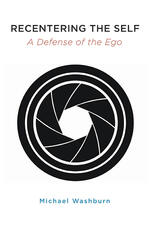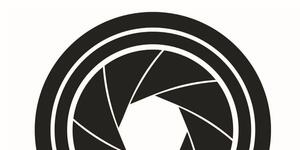
Recentering the Self: A Defense of the Ego (Part 1)
Evolution of the Project
Guest post by Michael Washburn
The Original Project
My work is in transpersonal theory, which explores spirituality as an inherent dimension of human experience. After retiring in 2007, I began planning a project the aim of which was to defend the role of the ego in spiritual life. By “ego” I mean that within us that experiences what is presented to consciousness and performs actions in response to what it experiences. In technical terminology, the ego is the experiencing “subject” and “executive agency” of consciousness.
My original plan had three main objectives. First, I wanted to set forth major criticisms of the ego found in spiritual literature across cultures. Second, I wanted to explain why the ego has so often been a target of criticism from a spiritual perspective. Finally, I wanted to defend the ego by explaining why, criticisms notwithstanding, it plays an essential role in spiritual life. This project eventually became the book that is now available through SUNY Press, Recentering the Self: A Defense of Ego.
The Project Grows Larger
My project encountered difficulties from the outset because negative views of the ego extend well beyond the spiritual perspective. The ego has long been a focus of criticism in the West. In the modern period before the twentieth century, some philosophers raised doubts about the ego by challenging ideas originally associated with it, such as its assumed direct self-awareness and its assumed substantiality, incorporeality, free will, and control of the passions. Doubts about the ego grew in the twentieth century, when perspectives in psychoanalysis, phenomenology, sociology, poststructuralism, feminist theory, and consciousness studies targeted the ego for criticism. By the end of the twentieth century, the weight of these criticisms had led many to view the notion of the ego with skepticism.
Although I was convinced that the notion of the ego is essential to our self-understanding, I was unsure, given the views prevailing in 2007, whether I could go forward with my project. To do so, I would need not only to defend the ego’s role in spiritual life but also, as a prerequisite, to reexamine the notion of the ego itself. Such an undertaking seemed too ambitious. Nevertheless, recently retired, with free time at my disposal, and curious to see where a reexamination of the notion of the ego would lead, I pressed forward. Little did I know that I had embarked on a sixteen-year project that, already much larger than originally planned, would become larger still as it evolved!
The first order of business was to learn more about the history of the notion of the ego in the West. I began by studying the emergence of the notion in the seventeenth century in René Descartes’s idea of a res cogitans, an interior “thing” the only function of which is “to think” (chapter 1). I then studied precursors of the notion in Greek philosophy and Christian doctrine, as well as antecedents of the notion in early modern science (chapter 2). Finally, I studied critical discussion of the notion as it evolved from the seventeenth century to the end of the twentieth century (chapters 3 and 4). At this point, I began to explore ways in which the notion might be revised, hoping to find a formulation that I could confidently defend.
Fortunately, after a good deal of reflection, I arrived at a formulation that, I believe, meets critical challenges. With this revised conception of the ego in hand, I was ready to return to my original plan of defending the ego’s role in spiritual life.
An Unexpected Insight
However, an insight changed the course of my project: I realized that my revised conception of the ego not only clarified the ego’s role in spiritual life but also provided a new perspective for thinking about ego development. Wanting to take advantage of this discovery, I broadened the scope of my project once again. I now divided Recentering the Self into three parts, with Part 1 setting forth the history of the notion of the ego, major criticisms of the notion, and my revised conception of the ego; Part 2 explaining how my revised conception brings a new perspective to ego development; and Part 3 using my revised conception to defend the ego’s role in spiritual life.
In a follow-up blog post, I will summarize my revised conception of the ego and explain why I think it improves our understanding of what the ego is, how the ego develops, and why the ego plays an essential role in spiritual life.
Michael Washburn is Professor Emeritus of Philosophy at Indiana University South Bend. He is the author of Embodied Spirituality in a Sacred World, The Ego and the Dynamic Ground: A Transpersonal Theory of Human Development, and Transpersonal Psychology in Psychoanalytic Perspective, all published by SUNY Press.
Credit: OpenAI’s ChatGPT provided helpful suggestions when I was revising drafts of this post.


